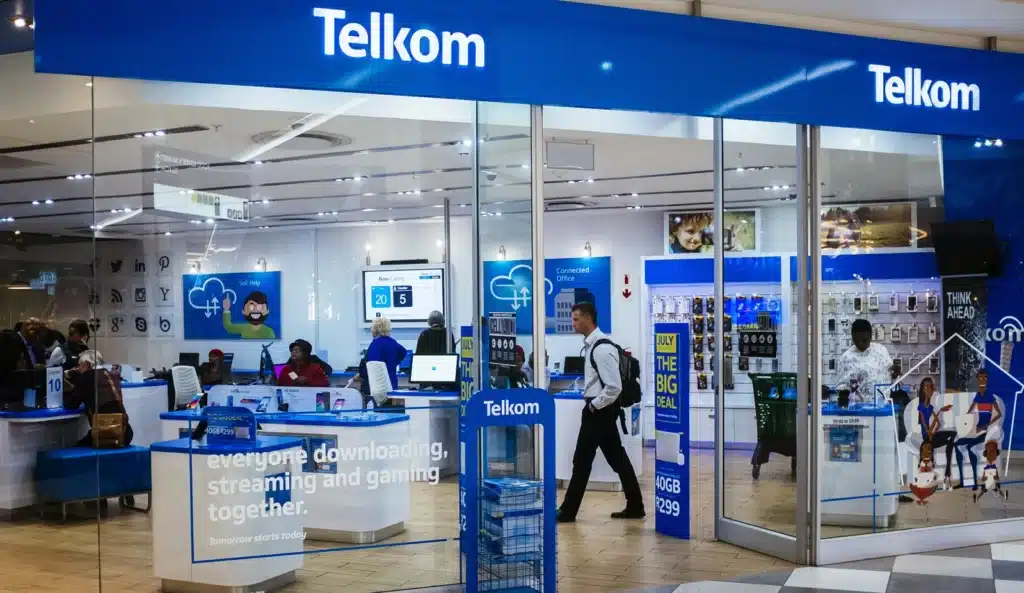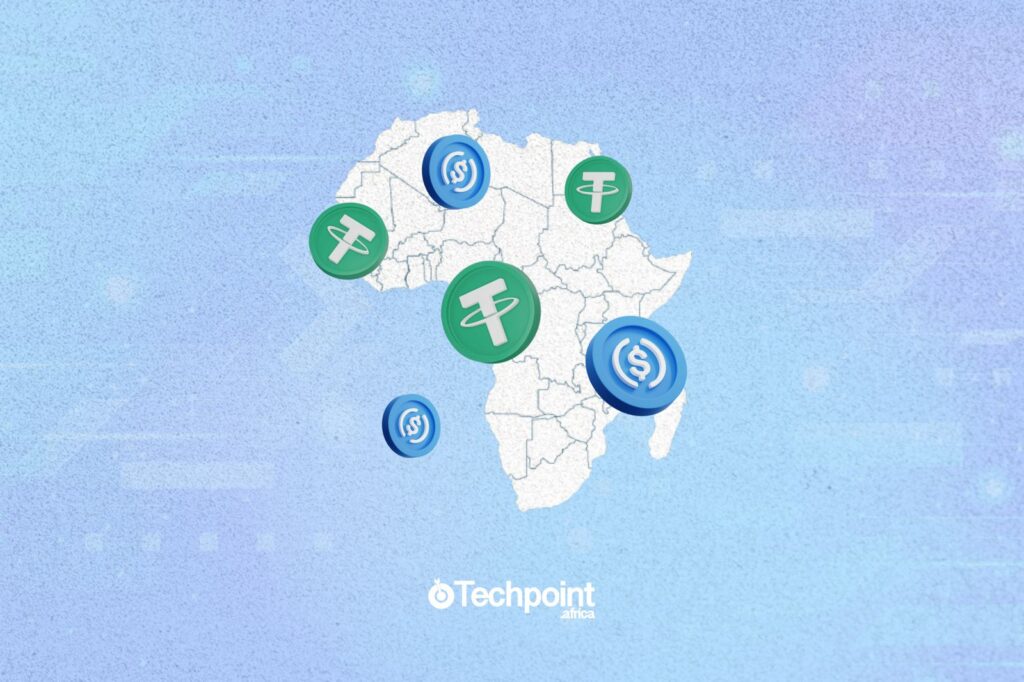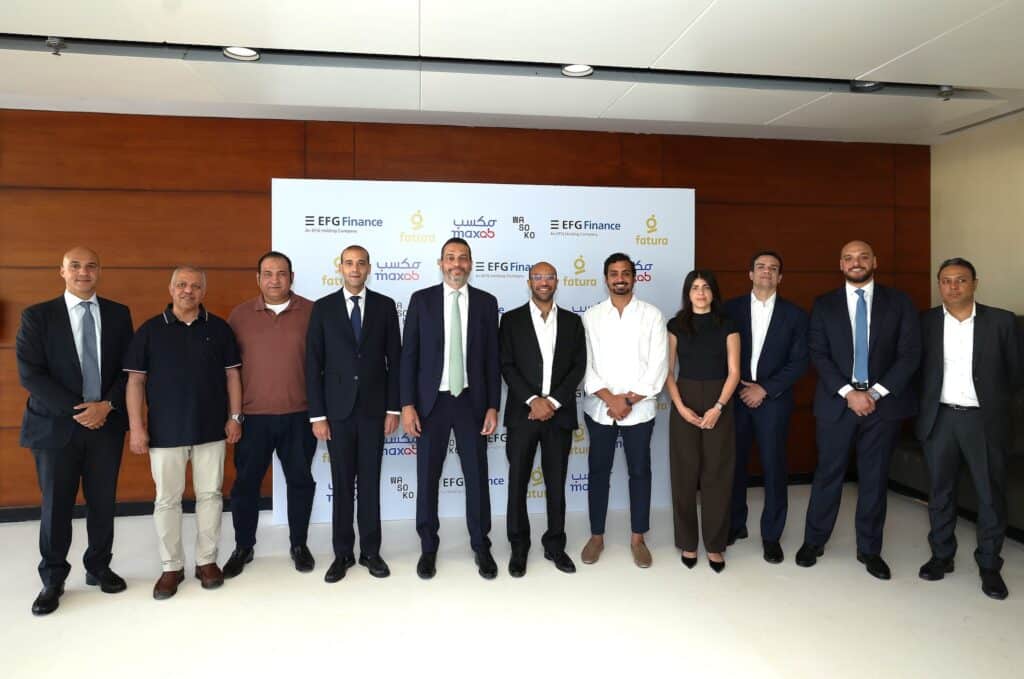こんにちは,
Victoria from Techpoint here,
Here’s what I’ve got for you today:
- How to lose billions: Telkom edition
- Why Nigeria needs a working stablecoin
- Fatura fuels MaxAB-Wasoko’s fintech push
Telkom let R140 billion slip

Telkom’s been on a wild financial ride. Back in June 2019, the partially state-owned telecoms firm was worth about R37.2 billion (roughly $2 billion). Fast forward to May 2025, and its market cap has nearly halved to R19.4 billion (around $1.04 billion), shedding about R18 billion ($960 million) in just six years.
This isn’t the first time Telkom’s value has taken a hit. After its 2007 high, things crashed hard, with its market cap plunging to R4.65 billion ($250 million) by June 2012. The steepest fall happened between 2008 and 2009, when the company’s value dropped from R32.6 billion ($1.8 billion) to R8.79 billion ($470 million). That was around the time it offloaded its 75% stake in Telkom Media to Shenzhen Media, a desperate attempt to keep Telkom Media alive.
But Telkom’s biggest financial regret? Letting go of Vodacom. In 2008, it sold a 15% stake to Vodafone for R22.5 billion ($1.2 billion) and handed the remaining 35% to shareholders. That 15% alone would be worth R42 billion ($2.25 billion) today — more than double Telkom’s current value. The full 50% stake would’ve been worth nearly R140 billion ($7.5 billion).
Instead, Telkom threw billions into launching 8ta, its own mobile network that simply couldn’t match Vodacom and MTN’s lead. Meanwhile, its core fixed-line business started slipping, and by the time fibre challenger Vumatel rolled in around 2014, Telkom had already lost its grip. Vumatel overtook Openserve, Telkom’s wholesale arm, by 2019.
Though the company bounced back briefly between 2013 and 2019, it all went downhill again at the end of that year. By June 2020, Telkom’s value had plummeted to R14.7 billion ($790 million), less than half of what it was just a year earlier. The mobile side was doing okay, but fixed-line demand was fading fast, and Telkom couldn’t pivot quickly enough.
Bottom line? Telkom’s story is a case study in missed chances and missteps. Selling Vodacom was a short-term win with long-term losses, and trying to go mobile while losing the fibre war left it scrambling. Now, it’s worth less than a quarter of what Vodacom is, a sharp fall from what could’ve been.
Join 30,000 other smart people like you
Get our fun 5-minute roundup of happenings in African and global tech, directly in your inbox every weekday, hours before everyone else.
Why Nigeria needs a working stablecoin

Nigeria just took a major step forward in crypto regulation. President Bola Tinubu has officially signed the digital assets bill into law, offering long-awaited clarity for how crypto is issued, traded, and stored in the country. Originally proposed in 2023, the legislation marks a shift from years of uncertainty and lays the groundwork for a more structured and trusted digital asset space.
Luno Nigeria CEO, Ayotunde Alabi, sees this as a defining moment. Speaking with Techpoint Africa, he said the new law brings the structure needed to boost adoption and attract serious investors. “It’s a turning point. Regulatory clarity builds trust, especially for institutions. This shows Nigeria is ready to embrace innovation responsibly,” he said.
Alibi emphasised that the future of crypto in Nigeria relies on teamwork. “Regulators can’t do it alone. Platforms, banks, and advocacy groups must all work together to create a safe, thriving ecosystem,” he said. Collaboration through open dialogue and test environments will be key to balancing innovation with consumer protection.
He also weighed in on the SEC’s recent efforts to list the cNGN stablecoin on exchanges, calling it a powerful example of traditional finance aligning with crypto. “A stablecoin like cNGN can improve payment systems and increase access to liquidity. It’s a step toward integrating digital assets into Nigeria’s financial system in a meaningful way.”
Curious about how Nigeria plans to balance oversight with innovation and build public trust in crypto? Check out Noah’s latest piece for Techpoint Africa for a deeper dive into what this law means for the future of finance.
Fatura fuels MaxAB-Wasoko’s fintech push

MaxAB-Wasoko has snapped up Egyptian startup Fatura from EFG Finance in a deal that’s all about leveling up its game in Egypt. This follows the MaxAB-Wasoko merger earlier this year, and it’s clear they’re not slowing down anytime soon.
With this deal, EFG Finance now holds a significant stake in MaxAB-Wasoko and even scored a board seat. More importantly, MaxAB-Wasoko gets access to Fatura’s strong network — over 626 wholesalers across 16 Egyptian cities. That’s a serious boost for their market reach.
Fatura isn’t new to buyouts. This is its second acquisition in three years. But this one’s got some serious synergy. MaxAB-Wasoko says Fatura’s lean marketplace model fits perfectly with its supply chain muscle, promising better product variety and smoother access to credit for local retailers.
The B2B eCommerce giant CEO, Belal El-Megharbel, sees it as more than just expansion. He’s calling it a major step toward becoming Africa’s ultimate one-stop shop for retail. The plan? Fuse eCommerce with fintech to build a seamless, continent-wide solution that works for retailers at every level.
EFG Finance’s boss, Aladdin ElAfifi, is also excited about what’s ahead. “We’re happy to back MaxAB-Wasoko as they reshape the retail and supply chain scene,” he said, noting that EFG’s board seat means they’ll play an active role in the company’s next chapter.
Since their merger, MaxAB-Wasoko has doubled down on growth. The fintech side of the business has already doubled revenue in Egypt, launched in Morocco, and now finances over 9% of e-commerce sales. With Fatura on board, they’re aiming even higher.
In case you missed it
- Vodacom bets R20bn on 5G and rural coverage to power South Africa’s digital economy
What I’m watching
- The Man Who Almost Broke Math (And Himself…)
- Every Unwritten Rule of Life Explained in 11 Minutes
Opportunities
- Techpoint Africa is excited to be a media partner for World Product Day Lagos on May 21, 2025. Join us for workshops, hackathons, and fireside chats focused on bold African innovation. Apply here.
- Want to exhibit or attend the Lagos Startup Expo in June? Visit this website here.
- MTN is recruiting for several roles. Apply here.
- IHS Towers is looking for professionals to fill several roles. Apply here.
- Moniepoint is hiring for several positions. Apply here.
- Kuda is recruiting for several roles. Apply here.
- Stanbic IBTC is looking for a Business Segment: Insurance & Asset Management. Apply here.
- Building a startup can feel isolating, but with Equity Merchants CommunityConnect, you can network with fellow founders, experts, and investors, gaining valuable insights and exclusive resources to help you grow your business. Click here to join.
- Help us make Techpoint better for you! Your feedback shapes what comes next (your responses may potentially save my job. A bit dramatic, but still). It will only take 30 seconds to tell us what works and what doesn’t. Fill it here.
- To pitch your startup or product to a live audience, check out this link.
- Have any fresh products you’d like us to start selling? Check out this link here.
- Follow Techpoint Africa’s WhatsApp channel to stay on top of the latest trends and news in the African tech space here.
Have a lovely Tuesday!
Victoria Fakiya for Techpoint Africa.
